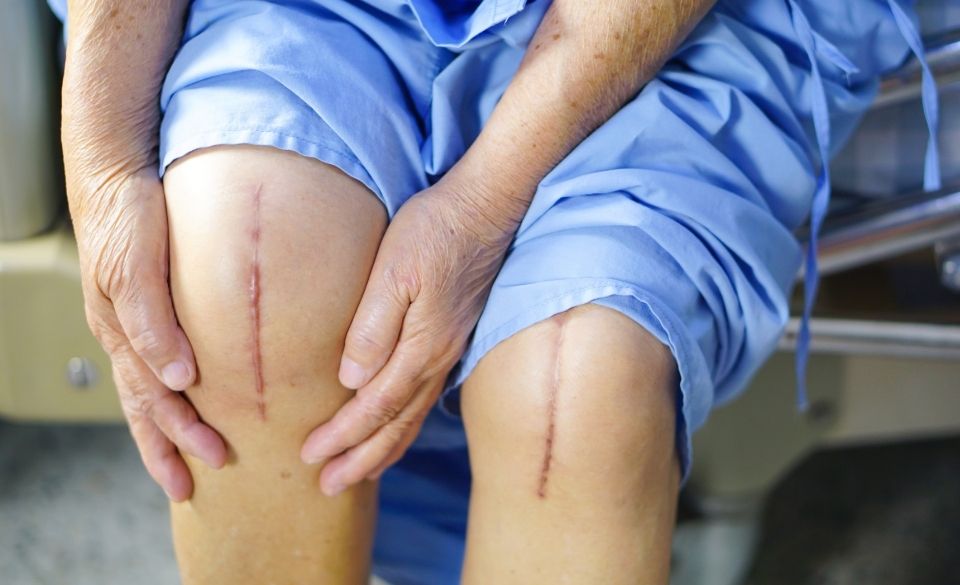
Can You Run After Knee Replacement? – Running After Knee Surgery
Page Contents
Even though running is good for your body, it does come with some risks. Logging miles day after day can take a toll on the body. This is due to the high-impact nature of high-impact exercises, such as running. It can not only take a toll on your muscles but can also put excess stress on your joints.
Because of this, many doctors are against running after knee replacement. Which, in turn, made many people wary about returning to running after a total knee replacement.
In this article, we discuss returning to running after knee surgery. However, it is important to take all information in this article as a guide only. If you are unsure about returning to running, speak to a professional first after any type of joint surgery.
So let’s answer the question – Can You Run After Knee Replacement?
What Is Knee Replacement Surgery?
Since the knees are one of the largest joints in the body, it is not surprising they are prone to wear and tear. This typically comes with age and use. However, overloading the body through running or other high-impact exercises can cause more rapid wear of the knee joints.
One of the most common treatments for damaged knees is knee replacement surgery. This is also known as TKR.
Knee replacement surgery of TKR involves replacing the damaged parts of the knee with a prosthesis. The goal of this procedure is to help the joint regain full function again. Thus helping to prevent knee pain in the future.
The prosthetic components used in knee replacement surgery are made from plastic and metal. This improves longevity and decreases the chance of going under the knife again as you get older.
Many people that need knee replacement surgery are suffering from a condition called osteoarthritis. Osteoarthritis is known as an age-related issue, as the cartilage between the joints deteriorates as you get older.
While there is no definite answer. Most knee implants should last up to 20 years. However, this largely depends on the patient and the daily exercise routines, mobility, etc.

Does Running Cause Knee Osteoarthritis?
Luckily, running alone has been proven not to cause arthritis and recent studies have found no link between the two. However, if you suffer from arthritis in the knee, running too much may prevent a full recovery.
However, saying that, some research suggests that easy running may help the inflammatory processes, by limiting it. So, while a lot of running is not recommended, some light running may limit the inflammatory processes that cause joint problems.
The knee joint can last a lifetime. However, if the joint is compromised by instability and altered mechanics, it may lead to increased wear and tear over the years.
Should You Get Knee Surgery?
Like most injuries, surgery is a last resort, especially when it comes to replacing the knee. Most doctors will first try non-invasive treatments, such as exercises to strengthen the surrounding muscles, stretching, and anti-inflammatory medication.
However, if symptoms continue to get worse, surgery may be the only option. This usually happens when the joints are worn down and then require bone-on-bone movement.
If treated early, the ACL, meniscus, articular cartilage, and tissues can usually be restored and replaced. This in turn helps protect the joints from any further damage.
When treated early, the injured tissues, such as the articular cartilage, ACL, and meniscus, can be fixed, restored, and replaced, protecting the joint from further damage.
Sports After Knee Replacement
Generally, some sports are frowned upon after knee surgery. These include running, football, basketball, and dancing. However, lower impact sports such as cycling, swimming, elliptical training, and skiing are usually recommended over the above.
Most high-impact sports should be limited after knee replacement surgery. Otherwise, you may find yourself wearing down the plastic components.
However, don’t let this put you off from getting back into running at a later stage. If done correctly and safely people have shown that it is possible.
Can You Run After Knee Replacement?
Even though some doctors don’t recommend running after a knee replacement, it is possible after four to six months. This gives the bones time to heal into the undersurface of the implants, which typically takes around 6 weeks.
After 6 months of recovery, running is typically classed as safe. But it is important to start slow and strengthen the surrounding areas of the knee.
It is important also to get your running gain checked, to make sure there are no form issues that increase the chances of getting pain in the knee again.

How To Start Running After Knee Injury?
Just like any joint injury, it is important to start from scratch again. This means starting out jogging with walking breaks between. Start by running no more than 10 minutes, split into segments like below:
Run 2 minutes
Walk 1 minute
Run 2 minutes
Walk 1 minute
Run 2 minutes
Walk 1 minute
Run 2 minutes
Walk 1 minute
Run 2 minutes
From there start to increase the amount of running. That means increasing the running segments to 3 minutes. As you get up to a total of 30 minutes running, you can start to reduce the walking periods in-between For example:
Run 5 minutes
Walk 1 minute
Run 10 minutes
Walk 1 minute
Run 5 minutes
Walk 1 minute
Run 10 minutes
After you have started to reduce the walking periods you can then start removing breaks from the running. For example:
Run 15 minutes
Walk 1 minute
Run 15 minutes
Then You can start can remove the walking breaks altogether. Even though this is a long process, you are less likely to instigate a previous injury and it will give time for the body to strengthen itself.
Just remember to take your time and focus on small increments in training, otherwise, you may find yourself back in the same predicament as previously.



